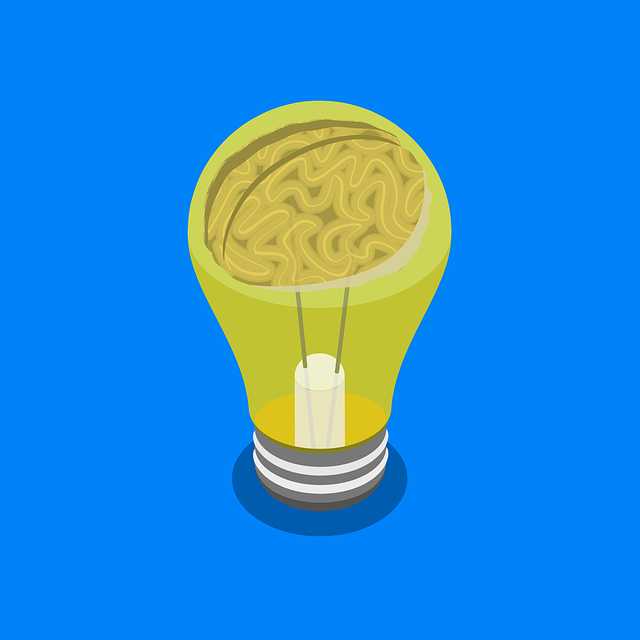Personalized anxiety treatment leverages holistic approaches, integrating cognitive-behavioral therapy (CBT), exposure therapy, lifestyle modifications, and evidence-based methods to address individual needs. It considers unique triggers, preferences, cultural context, and previous experiences, empowering individuals through self-care, social support, and tailored interventions. Regular tracking of progress, utilizing mood journals and apps, adapts strategies for optimal results. Strong support systems involving family, friends, and professionals enhance the effectiveness of anxiety treatment plans, while self-care practices like exercise, mindfulness, and sleep further reduce stress and promote well-being.
Personalized anxiety treatment plans are transforming the way we manage mental health. This holistic approach recognizes that every individual experiences anxiety differently. By identifying unique needs and preferences, therapists can create tailored strategies using various therapy types, lifestyle adjustments, and medication.
This comprehensive guide explores these key elements to help you understand how a personalized plan can offer lasting relief from anxiety, promoting improved well-being.
Understanding Personalized Anxiety Treatment: A Holistic Approach

Understanding personalized anxiety treatment involves a holistic approach that recognizes no two individuals experience or express anxiety in the same way. It’s not a one-size-fits-all solution; instead, it tailors interventions to match an individual’s unique needs, preferences, and circumstances. This approach considers not just symptoms but also underlying causes, personal history, cultural context, and lifestyle factors. By integrating various therapeutic methods – such as cognitive behavioral therapy (CBT), mindfulness practices, exposure therapy, or stress management techniques – into a personalized plan, it aims to empower individuals to effectively manage their anxiety and improve overall well-being.
A holistic anxiety treatment plan also embraces the importance of self-care, social support, and lifestyle modifications. It may include recommendations for regular exercise, adequate sleep hygiene, nutrition, and relaxation strategies. By addressing these aspects in conjunction with evidence-based therapy, personalized treatments offer a more comprehensive and sustainable approach to managing anxiety, fostering resilience, and enhancing quality of life.
Identifying Individual Needs and Preferences in Therapy

Anxiety treatment plans must be tailored to each individual’s unique needs and preferences to be effective. This involves a thorough assessment by mental health professionals who can identify specific triggers, fears, and coping mechanisms that are personal to the patient. By understanding these factors, therapists can design customized approaches, ensuring that the treatment aligns with the client’s lifestyle, beliefs, and goals.
Effective therapy sessions consider individual differences in personality, cultural backgrounds, and previous experiences. For instance, some individuals may prefer expressive arts or mindfulness practices as part of their anxiety treatment, while others might benefit more from cognitive-behavioral techniques. Adapting the treatment to these preferences enhances engagement and commitment to the process, ultimately leading to better outcomes in managing anxiety symptoms.
Types of Therapies for Customized Anxiety Management

In the realm of personalized anxiety treatment plans, a multitude of therapies offer effective strategies for customized management. Cognitive Behavioral Therapy (CBT) stands out by focusing on identifying and changing negative thought patterns and behaviors contributing to anxiety. This therapy empowers individuals to challenge and reframe distorted cognitions, thereby reducing anxious symptoms over time.
Additionally, Exposure Therapy is another powerful tool within the anxiety treatment arsenal. It involves gradual exposure to feared situations or objects in a safe and controlled manner, enabling individuals to confront and overcome their anxieties. By facing their fears head-on, individuals can learn coping mechanisms and reduce avoidance behaviors associated with anxiety disorders.
Incorporating Lifestyle Changes for Long-Term Relief

Incorporating lifestyle changes is a crucial aspect of long-term anxiety treatment plans. Simple adjustments to daily routines can significantly reduce symptoms and enhance overall well-being. For instance, regular exercise has been shown to effectively manage anxiety by releasing endorphins, which act as natural stress relievers. Additionally, adopting healthy sleep habits can improve mood and cognitive function, making it easier to cope with anxious thoughts during the day.
Mindful practices like meditation or yoga are also powerful tools in an anxiety treatment regimen. These techniques promote relaxation, enhance focus, and foster a sense of calmness, helping individuals navigate stressful situations more effectively. Incorporating stress-reducing activities, such as engaging in hobbies, spending time in nature, or practicing deep breathing exercises, can further strengthen the effects of anxiety therapy and contribute to lasting relief.
The Role of Medication in Personalized Anxiety Treatment Plans

In the realm of personalized anxiety treatment plans, medication plays a multifaceted role, offering a significant tool in managing symptoms and enhancing overall well-being. The most common types include selective serotonin reuptake inhibitors (SSRIs) and serotonin-norepinephrine reuptake inhibitors (SNRIs), which work by balancing neurotransmitters in the brain that regulate mood and emotions. These medications can help reduce feelings of anxiety, worry, and fear over time, providing a crucial foundation for other therapeutic interventions.
Beyond SSRIs and SNRIs, certain other classes of drugs may be integrated into personalized plans based on specific needs. For instance, beta-blockers can temporarily relieve symptoms of physical anxiety, while anti-seizure medications have been found effective for some individuals with severe anxiety disorders. The choice and dosage of medication are tailored to each patient, considering their unique circumstances, medical history, and response to treatment. This personalized approach ensures optimal efficacy and minimal side effects, making it a key component in comprehensive anxiety treatment strategies.
Tracking Progress and Adjusting Strategies Over Time

Tracking progress is a vital component of effective anxiety treatment. By regularly assessing how an individual’s symptoms and overall well-being are changing, healthcare providers can tailor their strategies to ensure optimal results. This may involve setting specific, measurable goals for managing anxiety—for instance, reducing panic attacks or improving sleep quality. Through frequent check-ins and the use of tracking tools, such as mood journals or apps designed for mental health monitoring, patients gain valuable insights into what works best for them.
As strategies evolve, so too should the approach to anxiety treatment. Adjustments are made based on progress data, individual feedback, and emerging research. This dynamic process allows for a personalized journey where treatments can be refined over time, ensuring they remain effective as an individual’s needs change. Such adaptability is key to fostering resilience and empowering individuals to take control of their mental health.
Building Support Systems: Family, Friends, and Professional Networks

Building strong support systems is an integral part of any effective anxiety treatment plan. Family and friends play a crucial role in providing emotional backing, understanding, and encouragement during challenging times. They can offer practical help, such as assisting with daily tasks or providing transportation to therapy appointments, which can alleviate some of the burdens associated with anxiety. Moreover, having a reliable network of loved ones fosters a sense of belonging and reduces feelings of isolation, commonly experienced by those struggling with anxiety disorders.
Professional networks, including therapists, counselors, and support groups, are also vital components. These professionals offer specialized knowledge and skills to help individuals manage their anxiety effectively. Support groups provide a safe space for sharing experiences and learning from others who face similar challenges, fostering a sense of community and mutual understanding. Integrating these various support systems can significantly enhance the overall effectiveness of anxiety treatment plans.
Encouraging Self-Care Practices for Daily Stress Reduction

Incorporating self-care practices into daily routines is a powerful tool for managing and reducing stress, particularly in conjunction with anxiety treatment plans. Simple yet effective strategies like regular exercise, mindfulness meditation, and adequate sleep can significantly impact an individual’s ability to cope with anxiety symptoms. Encouraging clients to prioritize these activities provides them with tangible ways to take charge of their mental health.
Self-care isn’t just about indulging in luxuries; it’s about sustaining basic needs that often get neglected when dealing with anxiety. Teaching individuals to listen to their bodies and engage in activities that bring a sense of calm or joy can foster resilience against stressful situations. This proactive approach, combined with evidence-based anxiety treatment methods, empowers individuals to lead more balanced and fulfilling lives.
